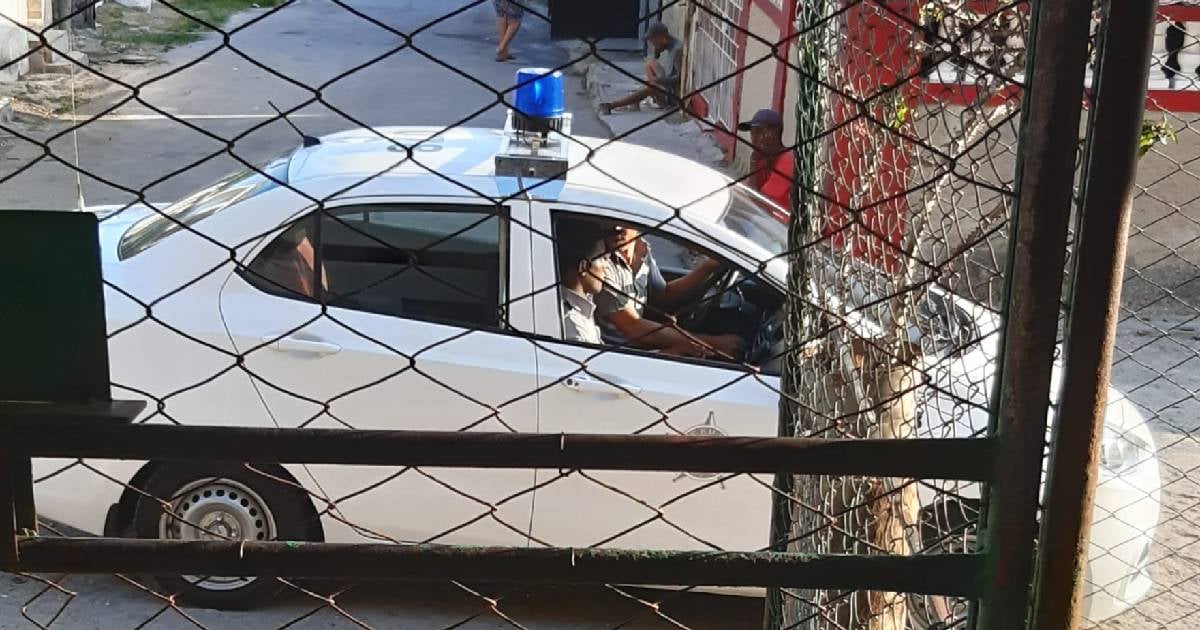
Related videos:
The regime mobilized this Saturday against Cuban activists to prevent citizen demonstrations on the eve of the anniversary of the combat fall of the Cuban National Hero, José Martí, amid a growing public discontent over the prolonged blackouts on the island.
Activists Wilber Aguilar Bravo, along with intellectuals Jorge Fernández Era and Miryorly García, have reported surveillance of their homes.
"Yesterday they said that no one is repressed for thinking differently, and today I wake up like this. I am a common Cuban with thousands of problems, and you continue your harassment against me and my family. In a country where there are no blind people, but many mute ones. Freedom for my son Walnier and all political prisoners. Without freedom of expression, without freedom of movement, without freedom to protest, without any freedom at all. LIBERTY!" Aguilar Bravo denounced in a Facebook post.
He also published images of several police cars besieging his home.
Fernández Era also stated that since the morning, a police car with two uniformed officers has been parked outside his house, and even when he went out to take out the trash, they escorted him to the car and asked for his identification card. "They are so dishonest that they won't admit that the purpose of such a deployment is me. They’re just, as they cynically say, 'doing their job,'" he expressed.
Editor and researcher Miryorly García stated that she was handed "an illegal prohibition against leaving my home, an illegal and temporary house arrest. The only explanation I can find for this is because today is the 18th, and if I were to stop in a park with a flower for José Martí on the eve of the anniversary of his death, or with a sign that says the beautiful word LIBERTY, such a revolutionary word in itself, the Revolution would collapse," she asserted.
Researcher Alina Bárbara López and Jenny Pantoja Torres, for their part, managed to reach the Parque de la Libertad in Matanzas to lay a floral tribute at the feet of Martí.
Bárbara López stated in a post that she would not stop her monthly civic protest despite the harassment from the regime, which violently detained her on April 18, causing injuries that required doctors to immobilize one of her hands.
At the end of his post, he referred to the recent interview conducted by the Franco-Spanish journalist Ignacio Ramonet with the Cuban leader Miguel Díaz-Canel, in which the latter claimed that dissent is not repressed in Cuba.
On June 18, I will be at the Central Park of Havana. I want to reassure my friends and anyone worried about my safety: nothing will happen to me. I became convinced of this after reading the interview with the president, described by Ramonet as "intelligent, moderate, and sensible"; a man who, according to the interviewer, stands out for "his insightful analyses, his foresight, and his sound advice." Well, this paragon of virtues vehemently denounced the brutality of the police in the United States with these words: "We have seen scenes of a teacher, an older woman, being subdued, restrained, humiliated on the ground. That does not happen in Cuba, that does not happen in Cuba!"
"As this accurately describes what happened to me on April 18 at the Bacunayagua police checkpoint, I must believe that President Díaz-Canel issued explicit orders to State Security to leave me alone. It's either that, or the 'independent republic of Bacunayagua' is no longer part of Cuba," he stated.
There are also reports that the regime has summoned protesters from the recent demonstrations in Baracoa and militarized the streets in Santiago de Cuba, in response to the growing public discontent due to the energy crisis that has left Cubans facing power outages of up to 20 hours a day.
Filed under: